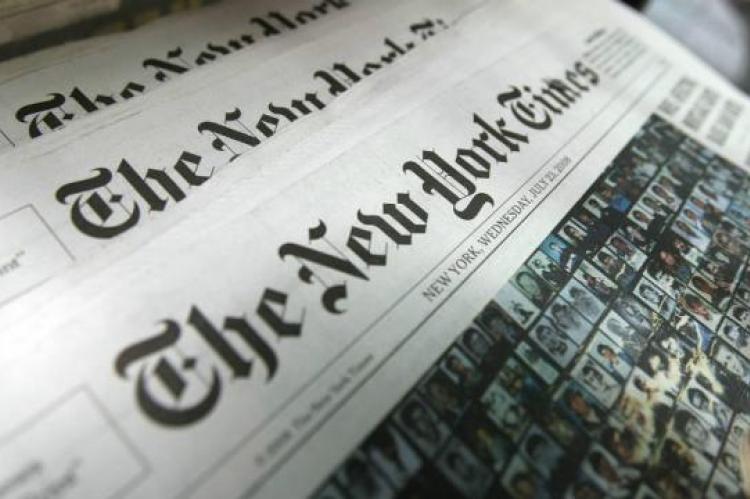Factual mistakes in the New York Times editorial
Editorial published in the New York Times on Turkey’s elections to be held on 24 June 2018 contains distorted information and factual mistakes
On 22 June 2018, the New York Times published an editorial on Turkey’s upcoming parliamentary and presidential elections, which included distorted information and factual mistakes.
Firstly, insinuating that the ministers in the new governance system of Turkey that will take effect after the elections next Sunday will be the yes-men of the next president, the article read: “Under the changes, a cabinet of ministers, now all elected members of Parliament, will be replaced by presidentially appointed advisers and deputies.”
However, this was a crucial democratic step to establish a genuine separation of powers since it aimed to cut off the ties of the executive branch to the legislative (the parliament). While ministers in the current parliamentary system are also members of the parliament, thus blurring the fundamental democratic principle of the separation of powers, they will be prevented from holding seats in the parliament or members of the parliament from undertaking posts in the executive, such as the minister, in the new presidential system. If a member of the parliament is appointed as minister their membership of the parliament will be annulled.
Secondly, in the succeeding sentence, the article claimed: “Many fear this will render the next Parliament little more than a rubber stamp, especially if Mr. Erdogan is re-elected and his party retains control.” But in strict contrast to this claim and as shown above, the decision to cut off the deep-rooted ties between the parliament and the executive branch will more firmly establish the separation of powers, buttress the independence of the parliament and thus create a more powerful legislative. A prime example of how the next system will fortify the parliament against the executive would be the abolishment of the president’s right to dissolve the parliament. Click here for a detailed fact-check of the frequently voiced false claims about Turkey’s governance system change.
Thirdly, the article claimed that Turkish President Recep Tayyip Erdogan “threatened the election’s fairness by letting government officials control polling stations, count ballots that lack an official stamp and even relocate polling stations.”
The article appeared to refer to a newly introduced rule but which in fact was an already established practice, that ballot box committees (BBC) will be drawn from a list of public employees. The number of people in the list will be double the number of BBCs and the president of the district electoral council will appoint BBC heads from among them.
Formerly, according to the relevant code, the official criterion for choosing BBC heads was “people with good fame.” The new regulation draws attention to the vagueness of this criterion and objectifies it by replacing it with the condition of being a public employee. Also, in practice, the “people with good fame” to be selected as BBC heads were already generally public employees.
Furthermore, the new regulation does not make any changes to the rule that BBCs consist of the members of the top five political parties of the last general parliamentary election – a vital condition to secure fair and free elections and ballot counting procedures.
Fourthly, the article claimed that the Peoples’ Democratic Party’s (HDP) former leader Selahattin Demirtas “is campaigning from prison because Mr. Erdogan jailed him on politically motivated charges to help suppress turnout.”
However, Selahattin Demirtas’ explicit support for both the jailed PKK leader Abdullah Ocalan and the PKK1 as well as its offshoots such as the YPG/PYD or the KCK was well documented. He was seen in a video clip as attending the funeral of PKK militants. At another occasion he declared that “We’ll erect the statue of our leader Apo [jailed leader of the PKK Abdullah Ocalan],” and that he will “get an internal investigation started about a [HDP] deputy on the grounds of party discipline” if they fail to attend PKK funerals. He praised jailed PKK leader Abdullah Ocalan saying, “Long live Leader Apo! The PKK is a community and a community cannot live without its leader.” There are also pictures in which he stood side by side with PKK commanders during visits paid by HDP teams.
- 1. The Kurdistan Workers’ party (PKK) is a Marxist-Leninist armed organization that tries to impose its ideology on Turkey’s majority-Kurdish southeast by using violence and is listed as a terror organization by the EU, NATO, Turkey and the US.



